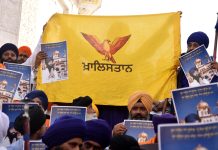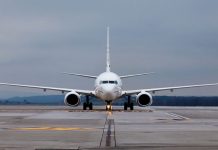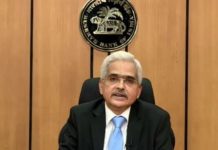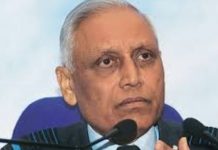 India stepped up its diplomatic offensive today to raise the pitch on Indian concerns on terrorism, especially in the context of the latest terrorist attack on the Jammu and Kashmir (J&K;) Assembly complex in Srinagar yesterday. Prime Minister Atal Behari Vajpayee addressed a letter to US President George W Bush, even as External Affairs Minister Jaswant Singh met George Bush, US Secretary of State Colin Powell and US National Security Adviser Condoleeza Rice in Washington, and conveyed the Indian concerns to them. The Vajpayee government projected its best Muslim face by fielding Union Minister of State for External Affairs Omar Abdullah to put the Indian point of view across forcefully.
India stepped up its diplomatic offensive today to raise the pitch on Indian concerns on terrorism, especially in the context of the latest terrorist attack on the Jammu and Kashmir (J&K;) Assembly complex in Srinagar yesterday. Prime Minister Atal Behari Vajpayee addressed a letter to US President George W Bush, even as External Affairs Minister Jaswant Singh met George Bush, US Secretary of State Colin Powell and US National Security Adviser Condoleeza Rice in Washington, and conveyed the Indian concerns to them. The Vajpayee government projected its best Muslim face by fielding Union Minister of State for External Affairs Omar Abdullah to put the Indian point of view across forcefully.
India fully assured the US that it would not exacerbate the situation by undertaking a hot-pursuit into Pakistan. At the same time, India insisted that in the first phase of war against terrorism, Pakistan-based terrorist organisations should be banned and their bank accounts frozen.
The common refrain was that while India was appreciative of the US predicament, India was keen that the US should accommodate Indian concerns. For instance, while Harkat-ul-Ansar and Harkat-ul-Mujahideen have been banned, the Jaish-e-Mohammad has evaded any action by the US. The Jaish-e-Mohammad claimed responsibility for the attack on the J&K; Assembly.
In his Letter to US President George Bush, Vajpayee protested that Pakistan was virtually putting India’s patience to test. Bush had reiterated the familiar US stand that Indian concerns, too, would be addressed, but only after the Osama bin Laden issue is tackled. Vajpayee emphasised that while India was fully backing the US agenda on terrorism, incidents of the kind that rocked Srinagar yesterday raise questions for Indian security concerns.“As a democratically elected leader of India, I have to address in our supreme national interest. Pakistan must understand that there is a limit to the patience of the people of India. I have asked my external affairs minister, Jaswant Singh, who is now in Washington, to convey to you more fully our sentiments in this regard,” the prime minister said.
Ironically, the incident took place just a day after the Pakistan President Pervez Musharraf claimed that Pakistan has no terrorist groups operating from its territory. “Mr President, the world is still coming to terms with the horrendous events of September 11. India joined wholeheartedly with the United States in its goal for the destruction and defeat of the global terror network, which you eloquently announced in your Address to the Congress. With you we condemned any nation that continues to harbour or support terrorism,” Prime Minister Vajpayee wrote.
Omar Abdullah maintained that while India would not want to exacerbate the situation at this juncture by undertaking “hot pursuit” of Pakistan-based outfits, the US must slam a ban on the terrorist organisations operating from the Pakistani soil and targeting the sensitive border state of J&K; – like Jaish-e-Mohammad, the Lashkar-e-Toiba and Hizb-ul-Mujahideen. Osama bin Laden had strong links with Jaish-e-Mohammad. It is for this reason that India demanded that the US should ban and freeze funds of Pakistan-backed terrorist outfits in the first phase of its global fight against terrorism.
The US should also ensure effective implementation of UN Security Council resolution calling upon all States to end support, including funding, supply of weapons and providing safe haven to terrorists, Abdullah said. Giving a stern warning to Pakistan for continuing to aid and abet terrorism in J&K;, he said, Islamabad must forthwith cease any “active or passive” support to militants operating in the state. “Enough is enough,” he said. “There is a limit to testing India’s patience. It will be better if this limit is not tested.”
India provided “credible” evidence to Washington on Jaish-e-Mohammad’s close linkages with bin Laden’s Al Qaida. Jaswant Singh sought to stress that it would not be enough if the Bush administration remained focussed on the Al Qaida, in its bid to tackle terrorism. If the US is serious on combating terrorism, it should look beyond the Al Qaida.
Soon after his unexpected 40-minute-long meeting with Bush, Jaswant Singh said, “The US is focussing upon the Al Qaida just now, and so far, at keeping its focus on one particular organisation, and dealing with that (organisation), and thereafter focussing on others. I understand that position but I also spoke about dual purpose terrorism — terrorism that operates under one name in one place, and operates as some other name in some other place, and we will continue to do so.”
letters@tehelka.com













